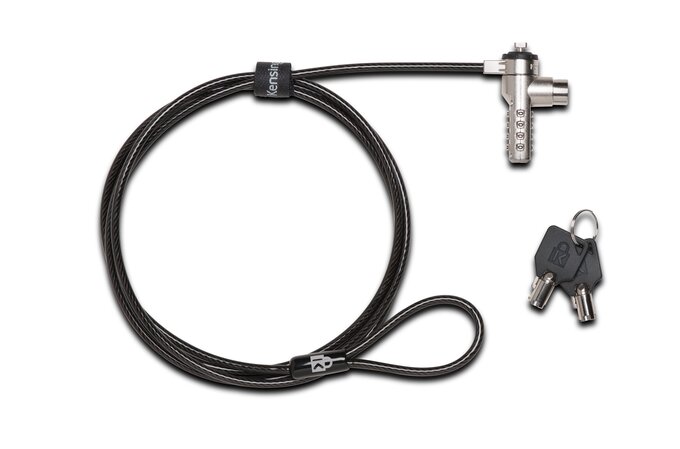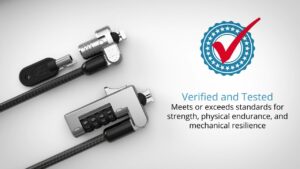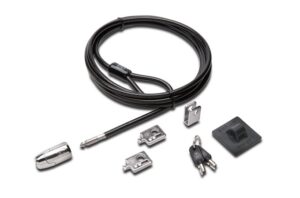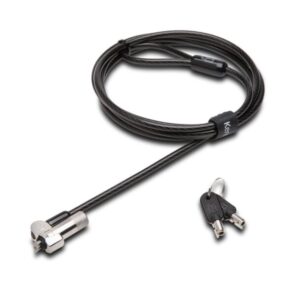Best Security Lock for Your Personal Computer
When it comes to laptop security 🔐, having a reliable lock can provide added peace of mind, especially if you frequently travel with your device or work in a public space. Here are some of the best security locks for laptops:
- Kensington MicroSaver 2.0 Keyed Laptop Lock: This lock features a strong carbon steel alloy cable and tamper-resistant lock head, making it a popular choice for securing laptops in public spaces. It also includes a compact, handy, and portable design for frequent travel.
- Noble Locks TZ04T Compact Wedge Lock: This lock is a versatile compatible model that fits well with most of the laptop models. This has a low-profile design that doesn’t get in the way of your daily use. It has an option for a key for easy unlocking and re-locking.
- Lenovo Kensington MiniSaver Cable Lock: These locks are compatible with most Lenovo laptops. It has a 6-feet carbon steel alloy cable for added security. It also includes a push-button design for easy locking and unlocking.
- Targus DEFCON CL Laptop Cable Lock: This lock features a 6.5-foot cable. Surprisingly, it also offers a combination lock for added security. Don’t worry if you forget the combination key as it also includes a resettable combination for added convenience.
- Maclocks Lockable Cover for MacBook Pro: This set of locks is specifically for Mac. It has a lockable cover that is specifically designed for MacBook Pro laptops. It includes a built-in security slot for a cable lock. Along with world-class security, it also offers a clear plastic cover for protection against scratches and spills.
When choosing a laptop lock, be sure to consider factors like:
- Device compatibility,
- Cable length,
- Ease of use,
- Security features, and
- Value for money.
With the right lock, you can help protect your laptop from theft and unauthorized access.
Best Shortcut Keys for Security
There is no universal shortcut key for laptop locks as the method of locking a laptop 💻can vary depending on the brand and model. However, many laptops have a built-in security feature that allows you to lock your device by pressing a combination of keys or using a shortcut. Here are some common methods for locking a laptop:
- Windows + L: This keyboard shortcut is a built-in feature of Windows that locks your computer screen and requires a password to unlock. This method works on most Windows laptops.
- Control + Shift + Eject (or Power): This shortcut is specific to Mac laptops and allows you to lock your device by putting it to sleep. To wake up your laptop, you’ll need to enter your password.
- Fn + F2 (or another function key): Some laptops have a built-in security feature that allows you to lock your device by pressing a combination of function keys. The specific key combination can vary depending on the brand and model of your laptop, so check your user manual for details.
- Third-party software: Some laptops may require third-party software to enable shortcut keys for locking the device. Check with the manufacturer or search online for compatible software.
It’s essential to note that locking your computer with a shortcut key isn’t always a foolproof safety measure. This option may not prevent decided thieves or hackers from getting access to the device. For next level protection, don’t forget the usage of a bodily lock or an aggregate of security measures like passwords, encryption, and two-component authentication.







